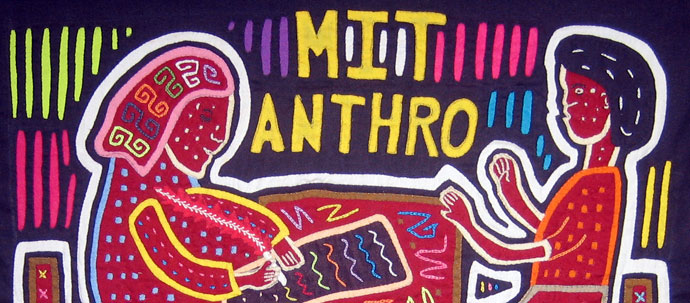
(Photo courtesy of the MIT Anthropology department.)
Featured Courses
Anthropology studies humankind from a comparative perspective that emphasizes the diversity of human behavior and the importance of culture in explaining that diversity.
While the discipline encompasses the biological nature of our species and the material aspects of human adaptation, it takes as fundamental the idea that we respond to nature and natural forces in large part through culture. Anthropology, then, is the study of human beings as cultural animals. Sociocultural anthropology draws its data from the direct study of contemporary peoples living in a wide variety of circumstances, from peasant villagers and tropical forest hunters and gatherers to urban populations in modern societies, as well as from the history and prehistory of those peoples.
The Anthropology Program at MIT offers students a broad exposure to the discipline as well as an anthropological perspective on problems and issues relevant to other fields in the humanities, social sciences, and engineering. It also provides more intensive introduction to areas of faculty specialization, which include social and political organization, economics and human ecology, religion and symbolism, and the anthropology of medicine and scientific research. Geographical specializations include cultures of Latin America, the Middle East, and the United States.
The anthropology curriculum is divided into six groups that show the breadth of the field, with particular emphases: introductory, social anthropology, technology in cultural context, and areal and historical studies. Special topics in anthropology and advanced graduate subjects are also offered.
MIT Anthropology students learn about the concept of culture, the nature of anthropological fieldwork, and the connections between anthropology and the other social sciences. They study the various theories that attempt to explain human behavior as well as the range of methods anthropologists use to analyze data. Students can focus on geographical areas, and on issues like neocolonialism, gender studies, religion and symbolism, or comparative political organization.
Anthropology Courses
-
- Course #
- Course Title
- Level
Archived Anthropology Courses
Some prior versions of courses listed above have been archived in OCW's DSpace@MIT repository for long-term access and preservation. Links to archived prior versions of a course may be found on that course's "Other Versions" tab.
Additionally, the Archived Anthropology Courses page has links to every archived course from this department.










